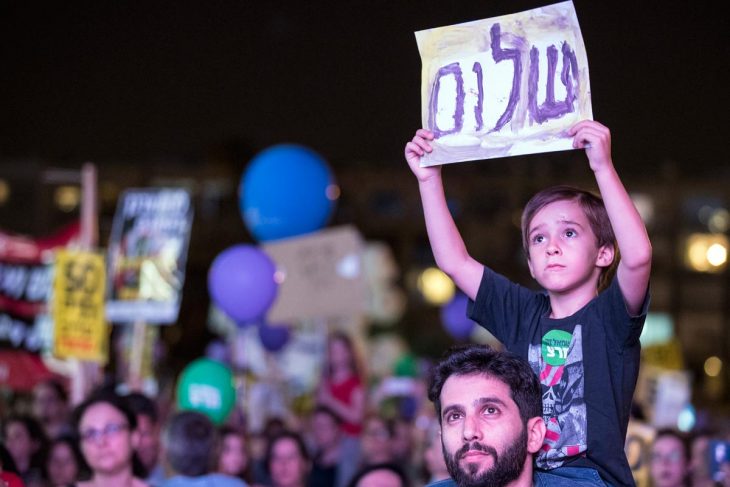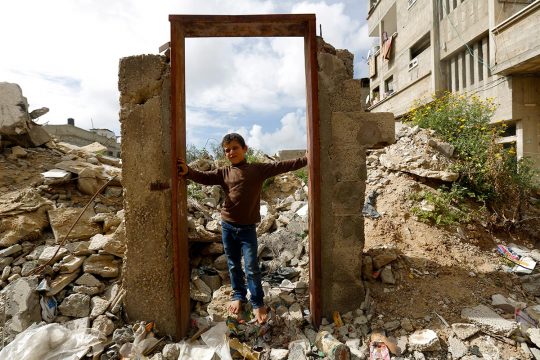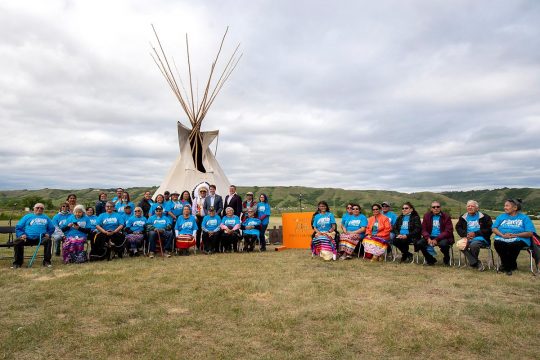Part 1: Unofficial Truth-Telling in Active Conflict
Civil society actors are making important inroads into the field of transitional justice through unofficial truth-telling. Transitional justice can be defined as a ‘process’ that seeks recognition for victims and to promote possibilities for peace, truth-letting, justice, reconciliation, and democracy. The truth-telling activities of civil society mostly replicate those undertaken by official commissions, such as producing reports, conducting public hearings, or meticulously documenting past abuses (Dudai and Cohen, Chapter 11, 234). Increasingly, many scholars are advocating for local truth-seeking processes. Bickford has labelled such initiatives as ‘unofficial truth projects’. In his leading study, he recognises that they may serve as replacements for official measures, (e.g. Brazil and Northern Ireland); as precursors to state-backed measures (Iraq and Brazil); and/or as complimentary to state initiatives (Guatemala). Dudai calls such projects ‘deviant commemorations’, because of the way they act against the dominant values in their own communities. An important element of such truth-telling is addressing the abuses committed by one’s own in-group, against members of an ethnic, national or religious out-group.
- VIABLE ALTERNATIVE
Unofficial truth-recovery is particularly valuable when formal institutions are unfeasible or simply unavailable (Dudai and Cohen, Chapter 11, 231). They can act as de facto replacements for official measures (Bickford, 1004). For instance, in countries like Brazil and Uruguay in 1984 and 1985, or Northern Ireland in 1998, the creation of an official truth commission was politically unfeasible, and it therefore fell on civil society to deal with the past. In such contexts, civil society becomes a viable alternative to the state, compensating for its inaction.
In Brazil, an unofficial truth-telling project called ‘Nunca Mais’ (‘Never Again’), coordinated by the World Council of Churches, exposed irrefutable evidence of systematic torture by the Brazilian state (Weschler). Working from 1979–1982, while the military was still in power, lawyers and other researchers investigated the use of torture against the regime’s political opponents, secretly copying documents from military trial transcripts from 1964–1979 and gathering testimony from political prisoners. This resulted in the publication of a final report that “became a best seller and had lasting effects on Brazilian society, receiving as much attention, if not more than an official report would have” (Weschler). The report proved conclusively that torture was an essential part of the military justice system and that judicial authorities were clearly aware of its use to extract confessions (Weschler).
Ultimately, the Brazilian civil society effort laid the foundations for national engagement with the past, as well as more formal transitional justice measures. Thus, in 1995, the democratic government established a Special Commission on Political Deaths and Disappearances (the CEMDP), that disbursed nearly 40 million reals of reparations. In 2011, Brazil established a National Truth Commission that formally investigated violations from the period of 1946–1988.
Unofficial truth-seeking efforts were also crucial to Northern Ireland. Like Brazil, they emerged at a time when the political climate effectively ruled out the creation of an official tribunal or truth commission. Indeed, the issue of responsibility was left unresolved in the ‘fault-neutral’ framework of the Belfast Agreement (Bell; Aiken). One prominent example is the Ardoyne Commemoration Project (ACP), a local effort that focused on personal testimonies from the small nationalist community of Ardoyne in Northern Belfast. Through the collection of over 300 oral interviews, the ACP sought to record the stories of around 100 people killed during the ‘Troubles.’ The ACP emerged in 1996 as a result of the community’s desire to acknowledge the victims as a counter to state-sanctioned forgetting and to ‘tell their story’ from the perspective of the community (ACP). Notably, the process began two years before the Good Friday Agreement was signed in 1998.
- UNOFFICIAL ADVANTAGE
Unofficial truth-telling projects can also be more advantageous. Whilst state-led mechanisms enjoy some distinct advantages (e.g. greater status, visibility, powers and recognition), civic endeavors better serve community-level truth-telling (Bickford, 995). An unofficial project more easily allows ‘voices from below’ to be heard and heeded. According to the ICTJ, by mobilising victims, documenting abuses, and issuing formal findings, these inquiries “have often generated public support and catalysed official action.” For example, the Peace and Justice Service investigation in Uruguay “was more comprehensive, accurate and widely distributed than the little-known and anemic government report that was released later” (Crocker, 13).
In Guatemala, the project called the ‘Proyecto de Recuperación de la Memoria Histórica’ (REMHI) recorded close to 6500 testimonies and documented more than 55,000 human rights violations. Conducted by the Human Rights Office of the Archbishop of Guatemala, the project had the support of more than 70 churches, human rights organizations, and NGOs worldwide. Although not officially sanctioned, the project’s final report ‘Guatemala: Nunca Mas’ (released in April 1998) was highly publicised and extremely influential (Backer, 304-5; Cabrera). Thus, non-state truth-recovery is an important response to the past, and can both challenge official narrative, and mobilise a national response.
Part 2: Unofficial Truth-Telling for Israelis and Palestinians
Given the above, an Israeli-Palestinian truth project is desirable based on two fundamental arguments. Firstly, civil society efforts are the only feasible avenue for meaningful truth-recovery and transitional justice in the current climate. Akin to the countries discussed, Israel-Palestine is a highly politicised context, in which the prospects for an official truth commission or an imminent ICC intervention remain slim (Bracka). Whilst the conflict rages, there is little political incentive on either side to investigate past abuses. Israeli leaders are particularly reluctant to address issues concerning historical justice (Bar-Siman-Tov, 201).
Both Oslo I and Oslo II expressly deferred the question of the Palestinian refugees, “postponing any ‘policing of the past’ to a future unspecified stage” (King-Irani, 375; Cavanaugh, 940-1). The brokered settlements failed to mention any efforts to compensate or acknowledge Palestinian refugees, or consider symbolic measures to address the return issue. Whilst some peace plans mention 1948, none of them truly grapple with the psychological and historical barriers impeding the parties (Bracka). Civil engagement with the past may be the only way to credibly investigate and expose human rights violations, and apply transitional justice to the conflict.
Secondly, unofficial truth-telling may be more valuable, given its local legitimacy and role as a tool of conflict transformation. Civic truth initiatives often play a larger part in earlier stages of conflict than official ones (Dudai, 258). The Northern Ireland experience demonstrates the value of ‘sequencing’ truth recovery efforts in highly politicised contexts, “with intra-communal truth recovery being the first necessary ‘building block’ for people to develop the sense of self-confidence, security and receptiveness” (Lundy and McGovern, 2). For Israelis and Palestinians, grass-roots truth-telling might set the stage for narrowing meta-narratives, and fostering a degree of empathy between the two sides (Adam and Moodley, 156). Indeed, the ability to develop a new and shared view of the past is central to reconciliation processes, (Bar-Tal and Bennink) and it requires domestic legitimacy (Bar-Siman-Tov, 15). In this regard, the involvement of Israeli and Palestinian victims may lend more weight to truth-recovery. This is particularly true for the Palestinian refugees. The experience of Oslo demonstrates that formal authorisation of a political agreement is not enough, if the agreement is unacceptable to vast segments of the population.
Ultimately, culturally tailored transitional justice measures could significantly improve conflict resolution for this region. For example, unofficial truth-telling might resonate more with Palestinians based on their customary conflict resolution practices (sulha). A modified process of sulha might be a relevant basis for an Israeli-Palestinian community truth initiative (Lang, Gellman and Vuinovich). In particular, a transitional justice mechanism should be conceived that transcends the narrow official discourse, and which “encompasses the requirements of narrative, history, reparations, and repair.” This author contemplates a collaborative project in which an Israeli-Palestinian Truth and Empathy Commission (IPTEC) is jointly formulated to inform political negotiations and provoke wider debate (Miller, 306).
Part 3: ‘Build it, and they will Calm’: Conceiving an Israeli-Palestinian Truth and Empathy Commission (IPTEC)
It might seem counter-intuitive to conceive of an IPTEC against the grim political backdrop. Yet, as discussed in the previous article, in an era of diplomatic stalemate and official hostility, civil society efforts may be the only feasible avenue for truth-recovery and transitional justice in the Israeli-Palestinian conflict. Indeed, unofficial truth-telling may be more valuable, given its local legitimacy and role as a tool of conflict transformation.
From this standpoint, an unofficial transitional justice mechanism should be conceived that transcends the narrow official discourse, and which “encompasses the requirements of narrative, history, reparations, and repair” (Miller, 306). Miller contemplates a collaborative truth-telling project in which an IPTEC is formulated by Israelis and Palestinians to inform political negotiations and provoke wider debate. There is some precedence for academic endeavors spilling over from scholarly journals and conferences into the public domain. For example, in Israel, critical scholarship of 1948, led to marked shifts in popular memory, with official history textbooks being re-written (Nets-Zehngut, 9, 15), and increased diplomatic willingness to acknowledge responsibility for the Palestinian displacement (Hirsch, 247). Similarly, a bi-national academic initiative of this kind could break taboos on both sides, propose counter-narratives, and envisage a post-conflict reality.
GOALS OF AN IPTEC
An IPTEC grounded in the goals of empathy as reconciliation and restorative justice could sow the seeds of resolving the historical elements of the conflict (Nets-Zehngut, 9). Fostering empathy between rivals is instrumental to peacebuilding and transitional justice (Hamber and Kelly, 288-289). Thinner notions of reconciliation are advocated for Israelis and Palestinians because of the inter-state and ongoing nature of the conflict. For now, what is required is not expecting individuals to overcome trauma, to forgive or even to heal, but to encourage some identification with the other' side’s suffering (Rothstein, 13; Rouhana, 8; Dwyer, 246). The collection of personal stories and scholarship could begin the process of challenging exclusive notions of victimhood and mutual demonization. This is distinguishable from South Africa’s Truth and Reconciliation Commission, which framed reconciliation in religious and personal concepts of forgiving.
Beyond individual criminal justice, a vital requirement for Israelis and Palestinians is acknowledgement of historic rights, collective responsibility and some form of atonement for the past. Given that the conflict involves national and historic claims, the needs of the parties are potentially better suited to a restorative idea of justice, rather than a retributive one (Bracka). Arguably, an IPTEC has the potential to herald earlier support, healing and trust between the parties, and to promote a more meaningful termination of the conflict by extending the boundaries of discussion.
TRUTH-TELLING AS CREATIVE DIPLOMACY
The IPTEC could also provide creative strategies for diplomatic resolution. According to Nets-Zehngut and Ben-Josef Hirsch, revised historical narratives of 1948 opened up the official peace discussions. The 2000 Camp David and the 2001 Taba Israeli-Palestinian peace summits heralded a marked shift. In particular, critical scholarship enabled negotiators to revisit the issue of Palestinian refugees by “allowing the consideration of new negotiable tradeoffs, namely the tradeoff between the symbolic act of an Israeli acknowledgement (or even apology) and a Palestinian concession on their actual right of return” (Hirsch, 241).
Thus, as well as influencing the political elites (Hirsch, 251), an IPTEC might help resolve intractable items on the negotiation agenda by looking at them through a transitional justice prism (Dudai, 256). Indeed, the joint Israeli-Palestinian Geneva Initiative affirmed the value of symbolic acts diplomatically, and proposed “creating forums for exchanging historical narratives and enhancing mutual understanding about the past” (Article 7). Thus, Israeli and Palestinian negotiators might draw on an unofficial IPTEC to overcome diplomatic obstacles (Dudai, 264). For example, an Israeli public apology, compensation to refugees based on clear and transparent criteria, and an official report whose findings or recommendations would address past abuses, may all be contemplated as political concessions. As was the case in Sierra Leone and El Salvador, negotiators can agree upon a truth and reconciliation mechanism ‘in principle’ to be implemented once an agreement is achieved.
BILATERAL TRUTH-TELLING AND BROAD MANDATE
Notably, practitioners in the field tend to envisage an Israeli/Palestinian truth commission, which solely examines 1948 and Israeli accountability for the Palestinian refugees. For Miller, the Commission’s focus is squarely on the Palestinian refugees. Similarly, Peled and Rouhana contemplate transitional justice in Israel/Palestine as limited to 1948, and the Palestinian right of return. Indeed, in October 2014 Zochrot established an unofficial public truth commission to address Israeli responsibility for the displacement of Negev Bedouins during 1948-1960. Zochrot (remembering in Hebrew) is perhaps the most prominent transitional justice group in Israel, which conducts truth-telling activities on 1948. Its truth commission heard testimonies by Palestinian refugees, as well as by Jews who lived in the south and Jewish fighters involved in displacement and expulsion operations in the area.
The commission’s impact, however, was limited. Neither the report nor the public hearings garnered much media attention, let alone managed to counter denial of the Nakba within Israeli-Jewish society. No doubt, such endeavours are brave attempts to trial transitional justice in the region. Nevertheless, they are also too easily dismissed as one-sided, and lacking in a suitably nuanced view of historical responsibility. The Commission’s Report seemed to ascribe responsibility for the Palestinian refugees entirely to the Jewish society in Israel. An unofficial truth-telling project that only examines Israeli abuses diminishes its ability to affect both societies, and transcend reductionist history (Khalidi, 14; Rogan and Shlaim, 2). Ideally, an NGO sympathetic to the legitimate national claims and aspirations of both sides should pioneer an IPTEC.
Rather than deepening the divide, it is submitted that an IPTEC be broader than 1948, and akin to the South African model, address the human rights abuses of both parties. To be afforded contemporary relevance, credibility and real cathartic potential, a model IPTEC should contend with essential elements of the current conflict narrative (from Israeli occupation abuses to Palestinian terrorist attacks). Ideally, the IPTEC would address two historical periods, one of 1945-50 to resolve the historic taboo of Palestinian displacement and the claimed right of return. The second period would examine the conflict’s escalation following the second Intifada (2000-present) to treat two themes, one of Israeli military occupation and the other, of Palestinian suicide bombing and terrorist attacks on Israeli civilians.
A wider IPTEC would increase its reconciliatory and truth-telling capacity by garnering more support in Israel and the international community. Despite the asymmetry of power between Israelis and Palestinians, it is argued that, psychologically both nations are traumatised by “a victim ideology affecting their deepest levels of existence” (Meyerstein, 301). Thus, innovative unofficial bi-national approaches should be trialed in order to produce a common narrative on the origins of the refugee problem, and to offer a critical history of 1948, 1967 and the second Intifada.
CONCLUSION
Ultimately, engaging Israeli-Palestinian history is no small task. Still, it is part of a necessary process of transforming cultures of denial and victimhood into one of peace-building and acknowledgement. In cases like the Israeli-Palestinian one, where there is insufficient political will to establish an official commission, an IPTEC may represent an essential last resort to truth-telling, and could also be seen as a desirable and locally legitimate tool for confronting the past.
 OXFORD TRANSITIONAL JUSTICE RESEARCH
OXFORD TRANSITIONAL JUSTICE RESEARCH
This article has been published as part of a partnership between JusticeInfo.net and the Oxford Transitional Justice Research (OTJR), a network of high-level transitional justice researchers which is part of the University of Oxford. Justiceinfo.net publishes OTJR publications under the joint responsibility of its editor and OTJR.






